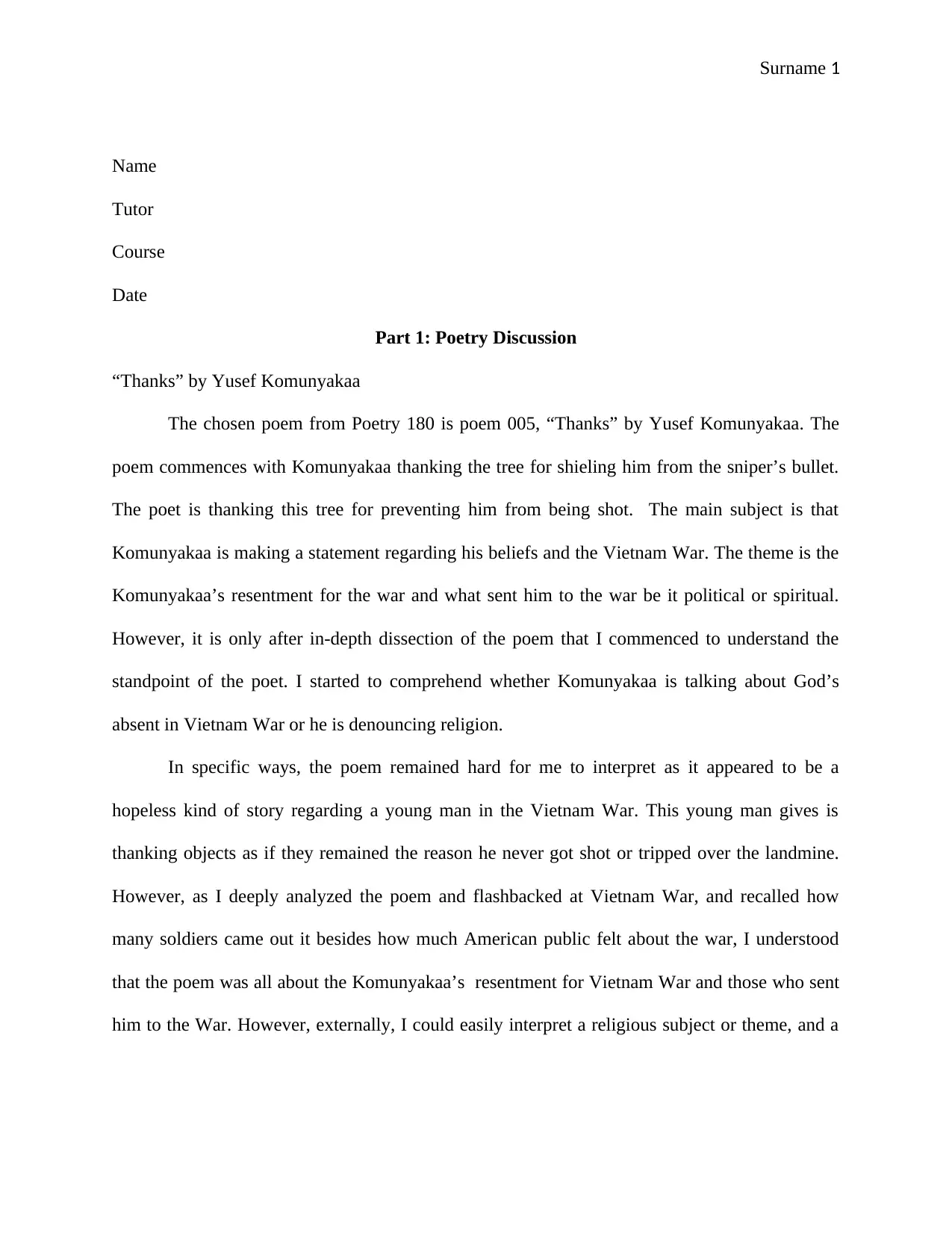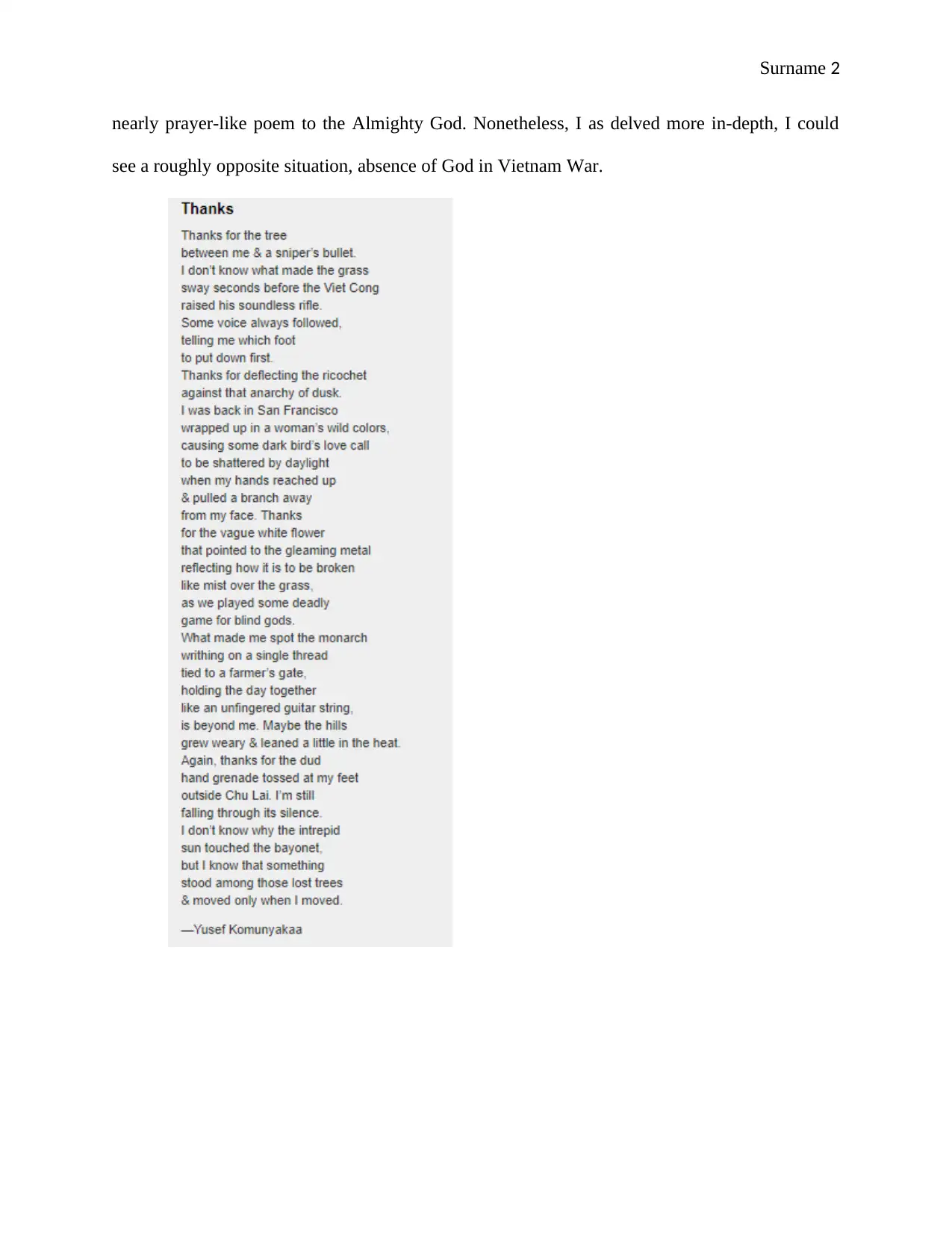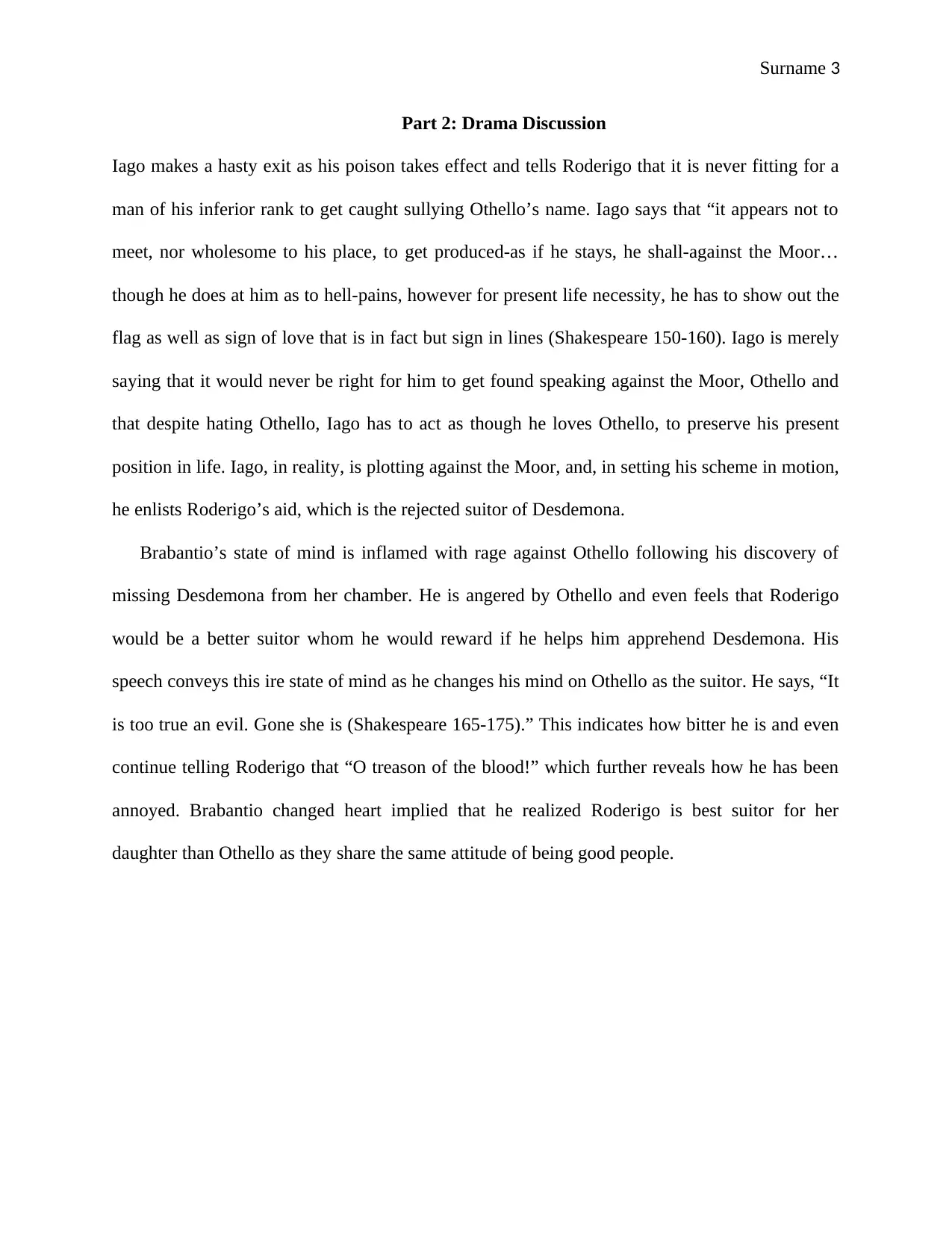Poetry and Drama Analysis: Othello and Yusef Komunyakaa's 'Thanks'
VerifiedAdded on 2023/01/20
|4
|674
|29
Homework Assignment
AI Summary
This assignment presents a student's analysis of two literary works: Yusef Komunyakaa's poem 'Thanks' and Shakespeare's play Othello. The analysis of 'Thanks' delves into the poem's themes of war, resentment, and the absence of God, examining the poet's perspective on the Vietnam War and the experiences of soldiers. The discussion of Othello focuses on the characters of Iago and Brabantio, exploring their motivations, actions, and the impact of their words and deeds on the plot. Iago's manipulative nature and Brabantio's emotional state are examined in detail, with references to specific quotes from the play. The assignment highlights key themes and character dynamics within these two works, providing a comparative analysis of the literary techniques employed and the messages conveyed.
1 out of 4






![[object Object]](/_next/static/media/star-bottom.7253800d.svg)